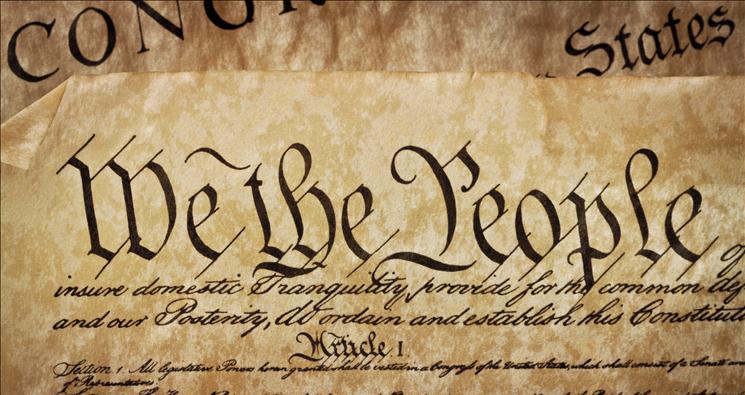Mayflower Compact: A Foundation For Our Constitution
393 years ago today, on November 21, 1620 (November 11 under the Old Style or Julian calendar), the Pilgrims and non-Pilgrims aboard the Mayflower drafted and signed the Mayflower Compact soon after anchoring off the coast of Cape Cod (having been blown off course from their actual destination of Virginia).
Concerned that a lack of government would lead to disorder and the failure of their mission to establish a colony, the settlers decided to draft a document that would allow for self-government.
Under the Compact, the settlers agreed to join a “civil body politic” and to enact and follow laws that would satisfy the common good of their colony.
Soon after the document was signed, a governor of the new colony was elected.
The Compact remained in effect from 1620 until 1691, when the Plymouth Colony was absorbed into the Massachusetts Bay Colony.
The Mayflower Compact was the first written document providing for self-government in what would later become the United States of America. It started us, as a people, on our path toward establishing a democratic republic, and it served as a foundation for our Constitution.
The Compact is reprinted here in modern English:
In the name of God, Amen. We, whose names are underwritten, the Loyal Subjects of our dread Sovereign Lord King James, by the Grace of God, of Great Britain, France, and Ireland, King, defender of the Faith, etc.:Having undertaken, for the Glory of God, and advancements of the Christian faith, and the honor of our King and Country, a voyage to plant the first colony in the Northern parts of Virginia; do by these presents, solemnly and mutually, in the presence of God, and one another; covenant and combine ourselves together into a civil body politic; for our better ordering, and preservation and furtherance of the ends aforesaid; and by virtue hereof to enact, constitute, and frame, such just and equal laws, ordinances, acts, constitutions, and offices, from time to time, as shall be thought most meet and convenient for the general good of the colony; unto which we promise all due submission and obedience.
In witness whereof we have hereunto subscribed our names at Cape Cod the 11th of November, in the year of the reign of our Sovereign Lord King James, of England, France, and Ireland, the eighteenth, and of Scotland the fifty-fourth, 1620.
